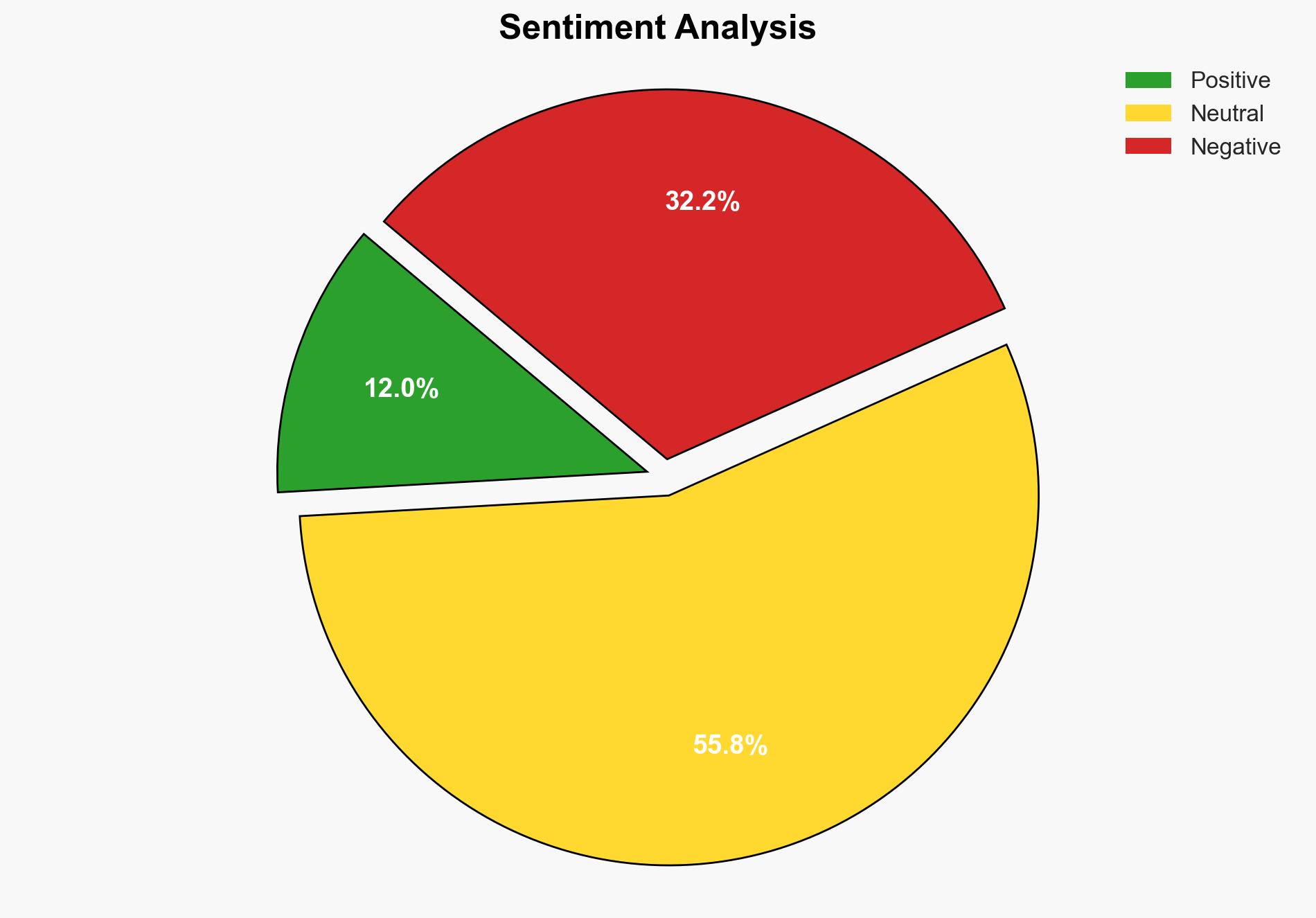Scammers cash in on tax season – Help Net Security
Published on: 2025-03-21
Intelligence Report: Scammers cash in on tax season – Help Net Security
1. BLUF (Bottom Line Up Front)
The current tax season has seen a significant increase in sophisticated scams targeting Americans, leveraging AI-powered phishing emails, deepfake phone calls, and fake tax preparation websites. These scams are designed to steal personal and financial information, resulting in substantial financial losses. The scams are increasingly convincing, with cybercriminals impersonating trusted tax services and government agencies. Immediate action is required to enhance public awareness and strengthen cybersecurity measures to mitigate these threats.
2. Detailed Analysis
The following structured analytic techniques have been applied for this analysis:
General Analysis
Cybercriminals are employing advanced tactics to exploit the tax season, targeting individuals across various demographics. The use of AI technologies, such as deepfake audio, allows scammers to convincingly impersonate officials, increasing the likelihood of successful fraud. Reports indicate that younger adults are more frequently targeted, often resulting in identity theft, while older adults report higher financial losses. The scams often involve fraudulent emails and texts mimicking legitimate tax communications, pressuring victims to act quickly under the threat of penalties.
3. Implications and Strategic Risks
The rise in tax-related scams poses significant risks to national economic security, with potential impacts on consumer confidence and financial stability. The sophistication of these scams could lead to widespread identity theft and financial fraud, affecting both individuals and financial institutions. The use of AI in scams represents an evolving threat that requires continuous monitoring and adaptation of cybersecurity strategies.
4. Recommendations and Outlook
Recommendations:
- Enhance public awareness campaigns to educate individuals on identifying and avoiding tax scams.
- Strengthen cybersecurity measures and encourage the use of AI-powered online protection tools.
- Implement stricter regulations and penalties for cybercriminal activities related to tax fraud.
Outlook:
In the best-case scenario, increased awareness and improved cybersecurity measures will reduce the incidence of tax-related scams. In the worst-case scenario, the continued evolution of AI-driven scams could lead to significant financial losses and identity theft. The most likely outcome involves a moderate increase in scam sophistication, necessitating ongoing vigilance and adaptation of security protocols.
5. Key Individuals and Entities
The report references Abhishek Karnik as a notable individual in the context of threat research. Additionally, organizations such as McAfee and TurboTax are mentioned in relation to cybersecurity and tax services, respectively.




